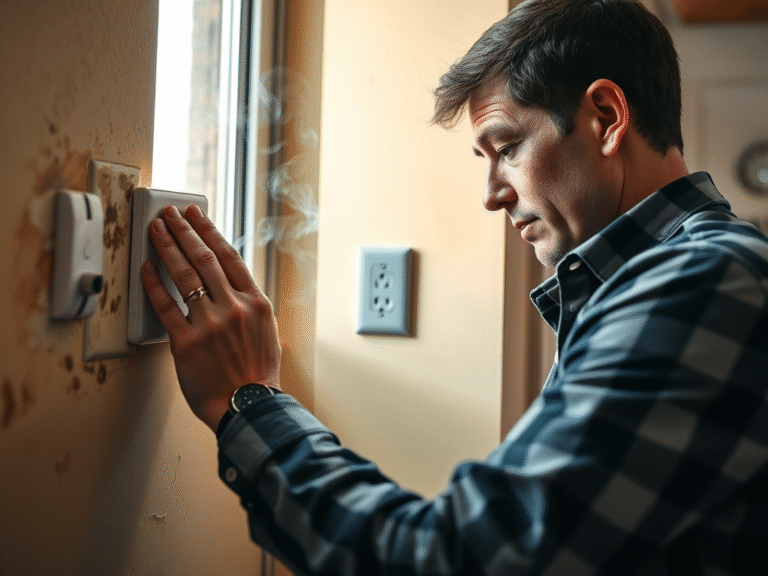Homeowners in Victoria, Cowichan, Duncan, Nanaimo, Parksville, Qualicum, Courtenay, Comox, Campbell River, and Port Alberni Home are particularly prone to dead rat odors due to their proximity to warmth and moisture, which leave behind dangerous bacteria.
In addition to the diseases a live rat can carry, the threat of having dead rats decomposing somewhere in your home is a primary reason to fear an infestation. The smell can completely disrupt your family’s wellbeing for weeks or longer. We will teach you the signs of a dead rat smell and what can you do about it?
What does a dead rat smell like? It is a putrid odor is a nasty mix of chemicals produced as the body decomposes, including sulfur dioxide and methane. The best way to describe it would be the rotting smell of death.
The bigger the animal, the more tissue to break down, the more time needed to decompose. Rats are larger than mice, so the smell of a dead rat is likely to be stronger and last longer than that of a mouse. Still, unless you can actually see the animal, you might not be able to determine whether you have a dead rat or a dead mouse in the house.
Regardless of whether it’s a rat or mouse, or squirrel, it is difficult to calculate how long the smell of a dead animal will last. It may take days or weeks for the carcass to dry out and the odor to naturally and completely disappear. Because we are on the West Coast, the humidity will affect the process and make the nauseating odor even more intense. So, if a rat dies near moist areas in your home or vehicle, it may be “ripe” for a long time.
How to get rid of a dead rat smell
You need to be aware of the dangers of rodent droppings.
Also, you need to understand the dangers of Hantavirus Pulmonary Syndrome (HPS), which can be fatal. People become infected through contact with hantavirus-infected rodents or their urine and droppings.
Find the source. When you find the dead rat smell, start looking for an increased presence of flies, maggots, beetles and other insects that are attracted to dead animals. If flies seem to be nearby or landing near a specific area on a wall or floor, try a “sniff test.” Determine if the smell is stronger at that spot? Look for stains as sometimes bodily fluids seep out of a carcass. In addition, keep an eye out for stains on drywall or ceiling tiles. Rats do not always die in plain sight or within easy reach. They are nocturnal beings that prefer to hang out in small spaces that offer plenty of hiding places.
Next step is to removing the dead animal and ventilate the area. Sometimes desperate times call for desperate measures, and the process of extricating one dead rat from your home or vehicle may include cutting through walls or floors, replacing ceiling tiles, pulling up carpets, etc.
In some cases, the best solution is to leave the dead animal where it is, and let Pacific Decontamination Services take over.
Here are some additional tips on how to tackle the dangerous bacteria that rodents bring.
If you decide to remove the dead rat carcass, seal it in a plastic bag and dispose of it promptly. Read these safeguards and always wear protective gloves and clothing, including a dust filter mask or respirator, whenever handling wild animals, dead or alive.
Finding the root cause of your rat problem.
Rats and mice are smart and resourceful animals. They are also limber and can squeeze through very small openings. Cover vents, seal holes in walls and foundations and look for gaps around roof soffits and loose pipes.
Prevention is the key to avoiding the dead rat smell. If you’re trying to address a rat problem, traps are preferred to poison bait. Rats may eat the poison and later die in an area of your home where their bodies cannot be removed. We do not recommend using poison.
Remember, keeping rats out of your home is the best way to prevent one from dying and creating an unpleasant situation. Read our blog on how to Rat Proof Your Home.
What do you do next? How do you solve the challenge of bacteria left by rats and mice?
We hope you won’t ever find yourself with a pest control problem, but, if you do, reach out to Pacific Decontamination Services at 778-269-0208 and talk to us.
Not only will we neutralize all dangerous bacteria, we will help you root problem solve your rodent problem without having to subscribe to a monthly pest control service.
Pacific Decontamination Services uses the world’s strongest, most effective and safe antimicrobial disinfectant, deodorization and chemical decontaminate. Our professional application will eliminate up to 99.99999% of any allergen, germ, bacteria or fungus that it touches. AND as powerful as it is, it is also completely safe.
Serving All of Vancouver Island: Victoria, Cowichan, Duncan, Nanaimo, Parksville, Qualicum, Courtenay, Comox, Campbell River, and Port Alberni.






